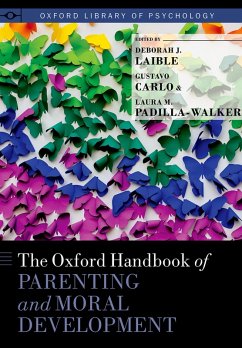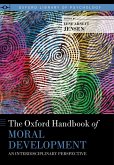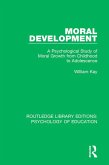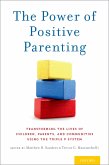The Oxford Handbook of Parenting and Moral Development provides a collection of state-of-the-art theories and research on the role that parents play in moral development. Contributors who are leaders in their fields take a comprehensive, yet nuanced approach to considering the complex links between parenting and moral development. The volume begins by providing an overview of traditional and contemporary perspectives on parenting and moral development, including perspectives related to parenting styles, domain theory, attachment theory, and evolutionary theory. In addition, there are several chapters that explore the genetic and biological influences related to parenting and moral development. The second section of the volume explores cultural and religious approaches to parenting and moral development and contributes examples of contemporary research with diverse populations such as Muslim cultures and US Latino/as. The last major section of the volume examines recent developments and approaches to parenting, including chapters on topics such as helicopter parenting, proactive parenting, parent-child conversations and disclosure, parental discipline, and other parenting practices designed to inhibit children's antisocial and aggressive behaviors. The volume draws together the most important work in the field; it is essential reading for anyone interested in parenting and moral development.
Dieser Download kann aus rechtlichen Gründen nur mit Rechnungsadresse in A, B, BG, CY, CZ, D, DK, EW, E, FIN, F, GR, HR, H, IRL, I, LT, L, LR, M, NL, PL, P, R, S, SLO, SK ausgeliefert werden.









